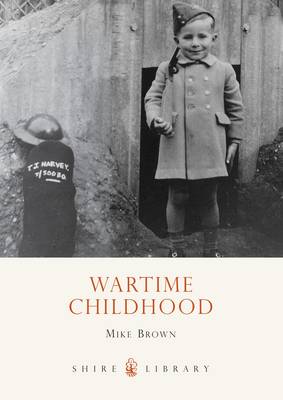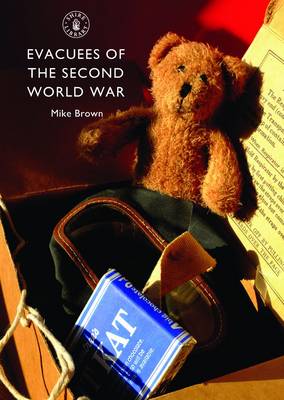Shire Library
3 primary works
Book 567
Growing up as a child in the Second World War could be a frightening or an exciting experience. Depending on the age of the child, the experience of war might be strange and scary, or all he or she had ever known. For many city children the war brought evacuation to the countryside and a way of life very different from the one they enjoyed in the city. For children who remained in areas that suffered from the attention of German bombers, escape to the Morrison or Anderson shelter, and the donning of a 'Mickey Mouse' gas mask, became part of life. War brought new excitement for boys who could now add parts of downed German aircraft, or parts of bombs, to their collections of conkers and string. For many girls the war brought greater responsibility, as their fathers went off to fight. This book recounts the British child's experience of the War with photographs, objects and ephemera. A feast of nostalgia, this book will appeal strongly to anyone who grew up during the war, and it will give younger people a fascinating insight into the childhood of their parents or grandparents.
Book 570
During the last days of peace in 1939 nearly two million people, most of them children, were evacuated from British cities, towns and ports to the countryside, or across the Atlantic to the USA and Canada. Whole schools were evacuated together and found themselves billeted in large country houses. Others were sent off individually or in small groups to whoever had space to accommodate them. It was a time of great upheaval and the transition from city life to countryside, or from one region to another, often proving extremely stressful. This is a concise history of British evacuation during the Second World War, including the unimaginable upheaval suffered by the inhabitants of the Channel Islands and Gibraltar, who were evacuated to mainland Britain. Beginning with the uncertainty of the Phoney War and the making of plans, this highly illustrated book looks at the experience of evacuation up to the homecomings of 1945 and the aftermath.
Book 845
On 3 September 1939, Prime Minister Neville Chamberlain sat tensely at a microphone, using radio to declare that ‘this country is at war with Germany’. During the ensuing wartime years, the BBC was the sole radio broadcaster in Britain, boosting morale through programmes such as ‘ITMA’ and ‘Worker’s Playtime’; helping the Home Front with useful hints and advice; transmitting government messages; and providing news. Personalities and stars became household names – Tommy Handley, Arthur Askey, Ethel and Doris Walters, Mr Middleton – and their catchphrases could be heard everywhere. And yet, as this fascinating book explains, the BBC chose to avoid propaganda, and had to tread a fine line between what the people wanted to hear and what it was felt they should hear.


